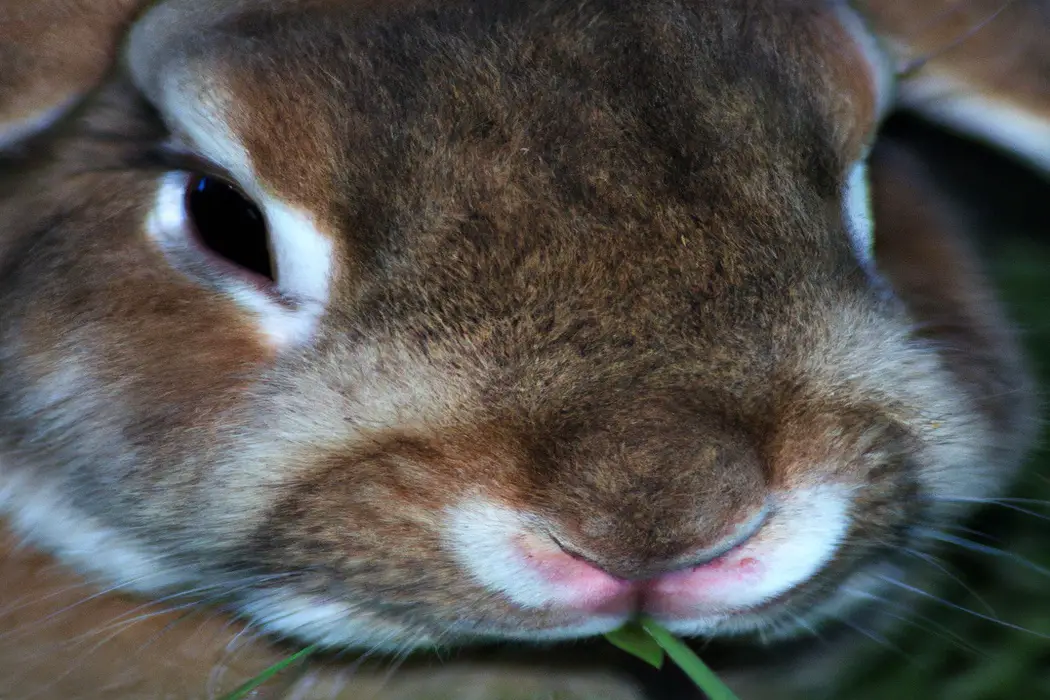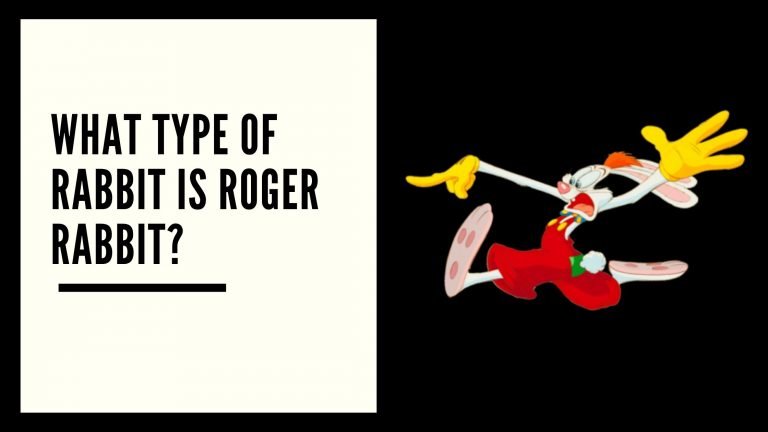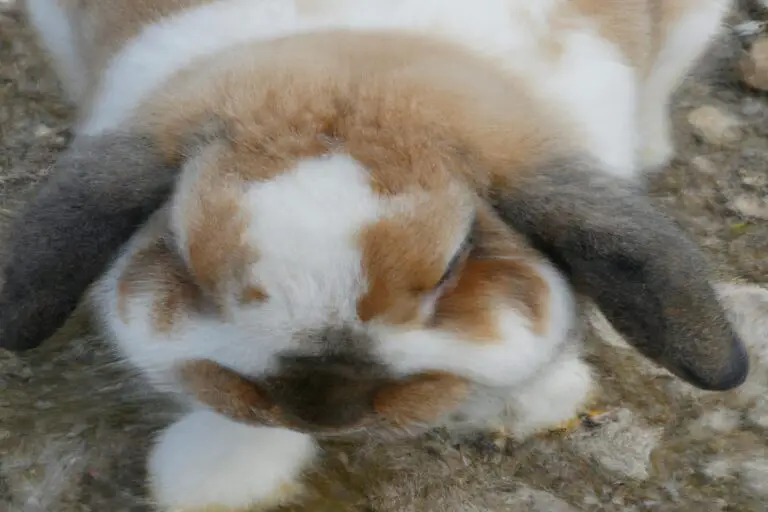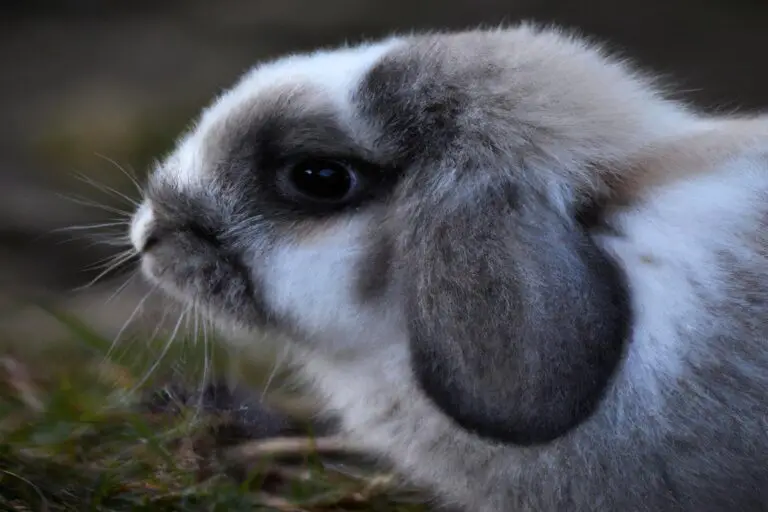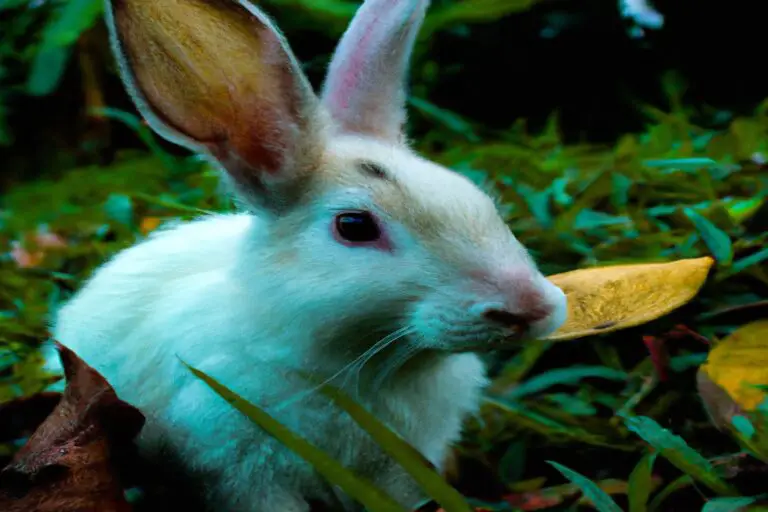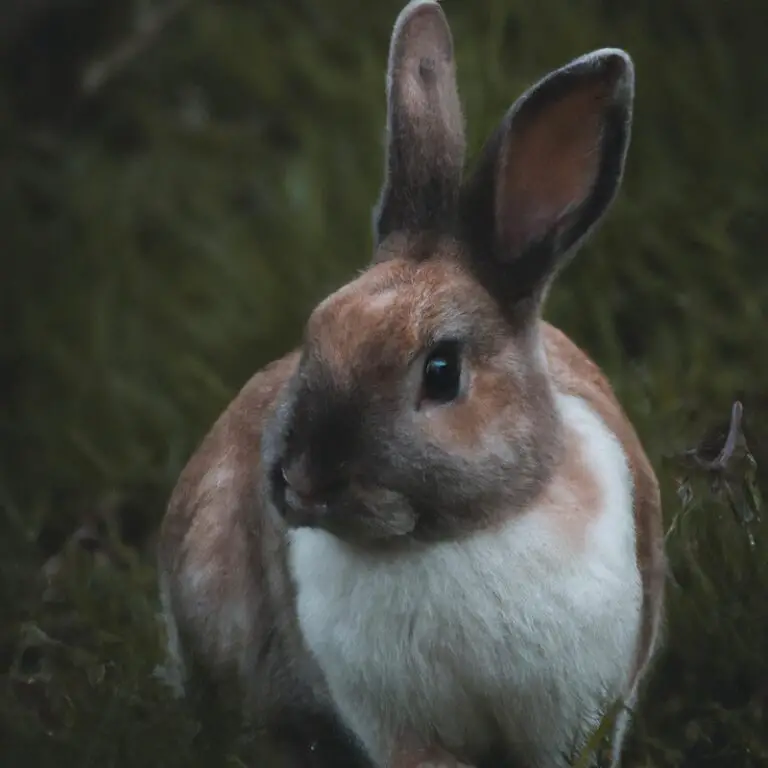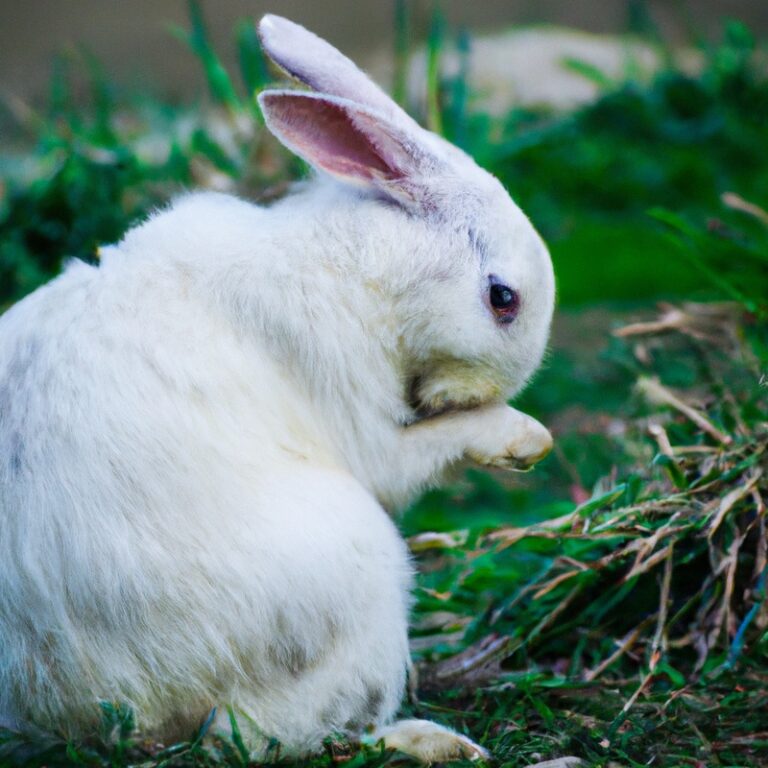Do Rabbits Chew Their Cud – Fascinating!
Key Takeaways:
- Rabbits do not chew their cud like cows or other ruminant animals.
- Rabbits have a unique digestive system that allows them to re-ingest certain droppings for added nutrients.
- This behavior, known as “coprophagy,” helps rabbits extract essential nutrients from their food.
- While it may seem unusual, coprophagy is a normal and necessary part of a rabbit’s diet.
Have you ever wondered if rabbits chew their cud like cows or sheep?
It’s an interesting question that might leave you scratching your head.
Well, in this blog article, we’re going to delve into the fascinating world of rabbit digestion.
We’ll explore their unique anatomy, the concept of chewing cud, and how it compares to ruminant digestion.
Plus, we’ll unravel the secrets behind rabbits’ natural chewing behaviors and their affinity for coprophagy.
And of course, we’ll give you expert tips on ensuring a healthy digestive system for your beloved bunny.
So, let’s hop right in and find out if rabbits really chew their cud!
| Question | Answer |
| Do rabbits chew their cud? | No |
| What is cud? | Cud is a food bolus that certain animals, called ruminants, regurgitate and chew again to aid in digestion. |
| Which animals chew their cud? | Ruminants such as cows, sheep, and goats chew their cud. |
| What do rabbits eat? | Rabbits primarily eat grass, hay, and leafy plants. |
| How do rabbits digest their food? | Rabbits have a unique digestive system called hindgut fermentation. They pass food through their system quickly and extract nutrients from the fibrous materials. |
| Do rabbits re-eat their feces? | Yes, rabbits practice a behavior called coprophagy where they eat their soft feces, also known as cecotropes, which helps them extract additional nutrients. |
Understanding Rabbit Digestion
Rabbit digestion is a fascinating process to understand.
Anatomy of a Rabbit’s Digestive System
The digestive system of a rabbit is fascinating.
It starts with their mouth, where they have sharp incisors to cut through vegetation.
From there, the food travels down their esophagus into the stomach.
Unlike humans, rabbits have a unique way of digesting food.
They have a specialized organ called the cecum, which is responsible for breaking down tough plant fibers.
It acts like a fermentation vat, where bacteria and other microorganisms help in the digestion process.
Afterward, the waste is eliminated through the anus.
In this way, rabbits are able to extract maximum nutrition from the plant material they consume.
So, you can see, their digestive system is quite efficient at processing their herbivorous diet.
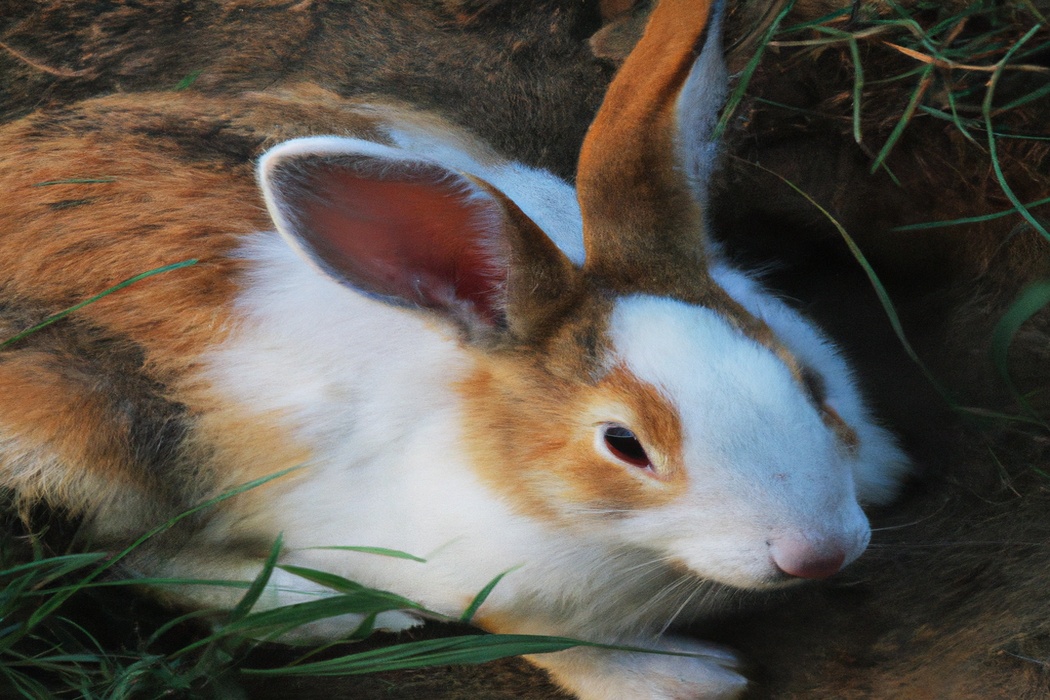
Do Rabbits Chew Their Cud?
Rabbits do not chew their cud.
Explaining the Concept of Chewing Cud
Chewing cud is a unique behavior seen in some animals, such as cows, sheep, and goats. It involves rumination, which is the process of regurgitating partially digested food and then re-chewing it to further break it down.
This helps with digestion and nutrient absorption.
The food is then swallowed again and passes through the digestive system for complete digestion. While rabbits are known for their constant chewing of food, they do not actually chew cud like these other animals.
They have a different digestive process that allows them to efficiently extract nutrients from their diet.
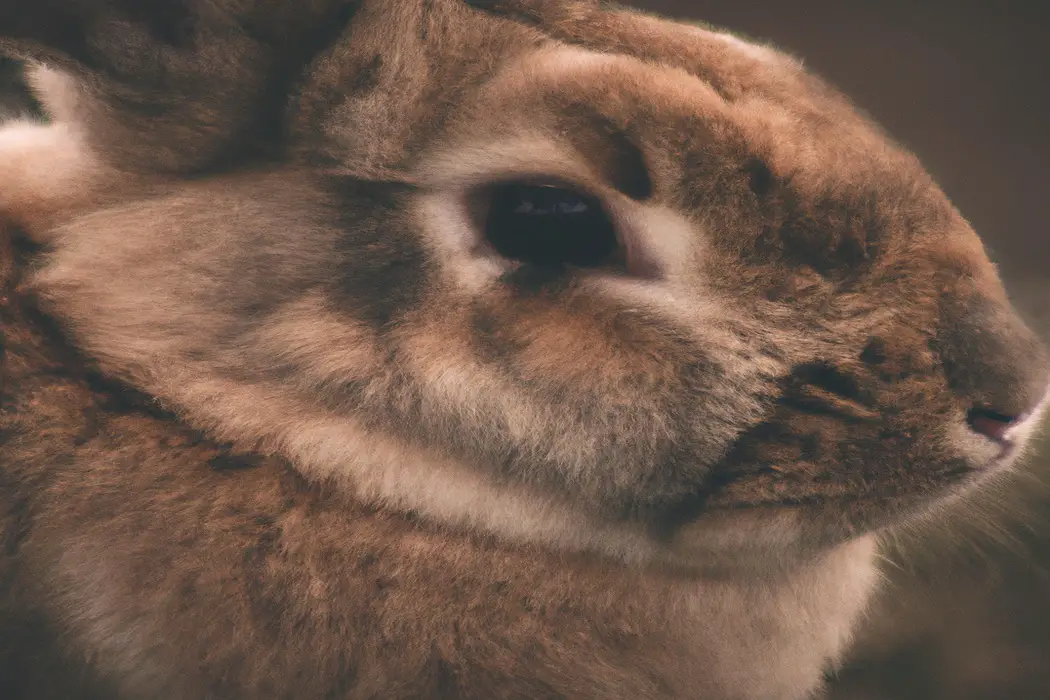
Comparing Rabbit Digestion to Ruminant Digestion
Rabbit digestion differs from ruminant digestion in a few key ways.
Unlike ruminants, rabbits don’t have a multi-chambered stomach or rumen.
Instead, they have a simple stomach and a specialized digestive system.
Rabbits practice coprophagy, which means they eat their own feces to re-digest and extract more nutrients.
This process allows them to extract more nourishment from the high-fiber plant material they consume.
Additionally, rabbits have a shorter digestive tract, which allows for rapid digestion and absorption of nutrients.
How Rabbits Process Food
Rabbits have a unique process of breaking down food in their digestive system.
The Role of Rabbits’ Teeth in the Digestion Process
Rabbits’ teeth play a crucial role in their digestion process. Their teeth are designed to continuously grow throughout their lives, which allows them to chew and break down fibrous foods like hay and grass.
By chewing their food into smaller particles, rabbits are able to extract more nutrients from their diet.
Additionally, their teeth help stimulate saliva production, which aids in the breakdown of food and the digestion process. Overall, the health and function of a rabbit’s teeth are essential for their overall digestive health.
The Importance of Fiber in a Rabbit’s Diet
Fiber is essential in a rabbit’s diet. It helps maintain good digestive health by keeping their gut moving regularly.
This is important because rabbits have a unique digestive system that relies on fiber to properly process food.
Fiber also helps prevent dental issues by promoting natural chewing and preventing overgrowth of teeth. A diet high in fiber can contribute to overall well-being and prevent obesity as it provides a feeling of fullness without excessive calories.
Good sources of fiber for rabbits include hay, leafy greens, and certain vegetables.
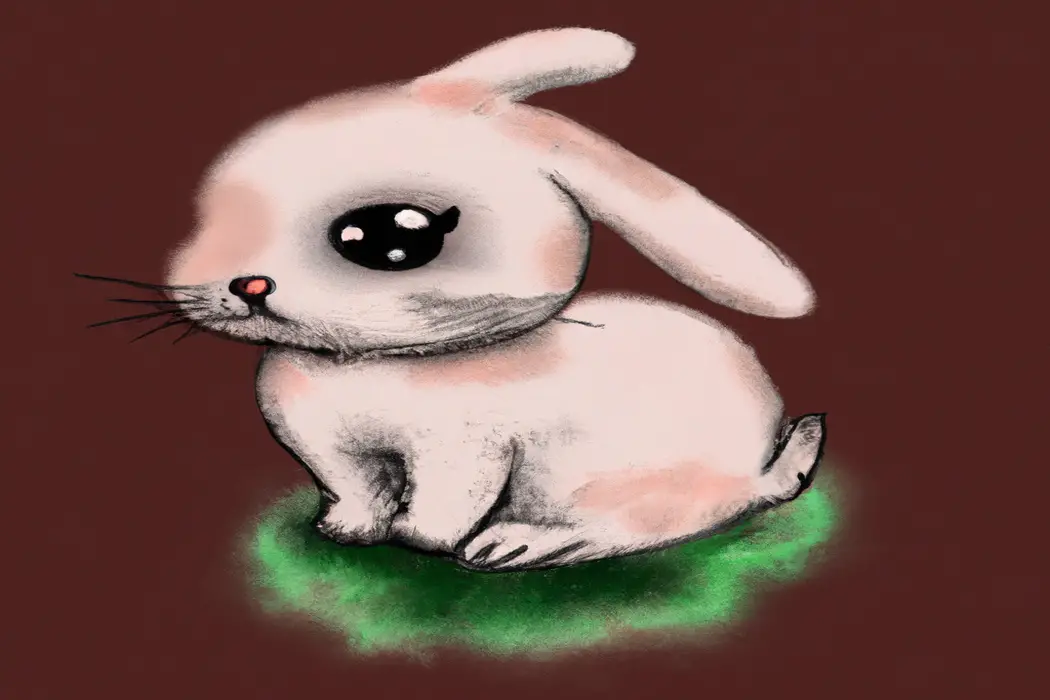
Understanding the Rabbit’s Digestive Process
Rabbits have a unique digestive process that allows them to efficiently extract nutrients from their food. It starts with chewing, where they quickly consume food and store it in their cheek pouches.
Then, they’ll find a safe spot to relax and chew their food again more thoroughly, a process called “cud-chewing.” Once swallowed, the food goes into their stomach, where it’s broken down by enzymes and begins fermentation.
This partially digested food then moves into the small intestine, where most of the nutrients are absorbed. Finally, the waste is passed through the large intestine and formed into small, dry pellets, which rabbits excrete.
Common Rabbit Behaviors
Rabbits have a variety of common behaviors, including exploring, chewing, hopping, and digging.
Exploring Rabbits’ Natural Chewing Behavior
Rabbits have a natural instinct to chew, which is crucial for their dental health and overall well-being.
They have continuously growing teeth, and chewing helps wear them down and prevents dental issues.
Rabbits enjoy chewing on a variety of materials, including hay, cardboard, and wooden toys.
Providing them with appropriate chew toys and plenty of hay will help satisfy this natural behavior and keep their teeth in good condition.
Make sure to regularly check their chew toys for signs of wear and replace them as needed.
Why Rabbits Engage in Coprophagy
Rabbits engage in coprophagy, which is the act of eating their own feces, for a few reasons.
Firstly, their digestive system is designed to extract as many nutrients as possible from their food, so when they first pass their waste, it still contains undigested nutrients.
By consuming their feces, rabbits can reabsorb those nutrients and maximize their nutritional intake.
Secondly, coprophagy helps rabbits maintain a healthy gut microbiome.
By eating specialized soft feces called cecotropes, rabbits ingest beneficial bacteria that aid in digestion.
This behavior is a natural and essential part of a rabbit’s diet.
Identifying Abnormal Digestive Behaviors in Rabbits
Identifying abnormal digestive behaviors in rabbits is important for their overall health and well-being.
Here are some signs to look out for:
- Lack of appetite: If your rabbit suddenly loses interest in food or stops eating altogether, it could be a sign of digestive issues.
- Changes in feces: Watch for any changes in the size, shape, color, or consistency of your rabbit’s droppings. Abnormalities like diarrhea, constipation, or small, dry droppings can indicate digestive problems.
- Distress or discomfort: If your rabbit shows signs of pain, such as grinding teeth, hunching over, or reluctance to move, it may be experiencing digestive issues.
- Excessive grooming: Rabbits with digestive problems may groom themselves excessively, particularly around the abdomen or rear end.
- Bloating or gas: A swollen belly or excessive gas can indicate a serious digestive issue in rabbits.
If you notice any of these abnormal behaviors, it is crucial to consult a veterinarian who specializes in rabbit care.
They will be able to diagnose the problem and recommend appropriate treatment to ensure your rabbit’s digestive system stays healthy.
Ensuring a Healthy Digestive System for Rabbits
To ensure a healthy digestive system for rabbits, focus on providing a proper diet, promoting dental health, and preventing digestive issues.
Providing a Proper Diet for Rabbits
Providing a Proper Diet for Rabbits is essential for their health. They need a high-fiber diet consisting mainly of hay, such as Timothy or grass hay.
This helps to maintain their digestive system and prevent dental problems.
Along with hay, rabbits should have fresh vegetables, such as leafy greens and carrots, and a small amount of pellets. It’s important to avoid feeding them foods high in sugar, as this can lead to obesity and dental issues.
Always provide fresh, clean water for your rabbit to drink.
Strategies to Promote Dental Health in Rabbits
To promote dental health in rabbits, providing a diet rich in hay and grasses is essential.
This helps wear down their constantly growing teeth and prevents dental problems.
Additionally, providing them with chew toys made of safe materials can help keep their teeth healthy and strong.
Regular veterinary check-ups are important to catch any dental issues early on and address them promptly.
Finally, providing a clean and stress-free environment for your rabbit can also contribute to their overall dental health.
Tips for Preventing Digestive Issues in Rabbits
To prevent digestive issues in rabbits, it is important to provide them with a proper diet. Make sure they have access to fresh hay, as it promotes healthy digestion and prevents blockages.
Additionally, offer a balanced diet of fresh vegetables and limited amounts of pellets.
Avoid giving them foods that are high in sugar or carbohydrates, as these can lead to gastrointestinal problems. Finally, ensure that your rabbit has access to clean water at all times.
Regularly monitoring their eating habits and seeking veterinary care when necessary can also help prevent digestive issues.
Frequently Asked Questions about Rabbit Digestion
Can rabbits vomit?
No, rabbits cannot vomit. Unlike many other animals, rabbits have a one-way digestive system that prevents them from bringing up their food once it has been ingested.
Instead, their digestive system is designed to efficiently process and absorb nutrients from their food.
However, if a rabbit experiences any digestive issues or blockages, it is important to seek veterinary assistance as soon as possible.
Do rabbits have a four-chambered stomach like cows?
No, rabbits do not have a four-chambered stomach like cows.
Instead, they have a simple stomach just like humans and other small mammals.
This means that the food they eat goes through a single compartment in their stomach before moving into the small intestine for digestion.
Unlike cows, rabbits rely on a specialized digestive system that includes a unique process called coprophagy, where they eat their own feces to extract more nutrients from their food.
What happens if a rabbit’s digestion slows down?
If a rabbit’s digestion slows down, it can lead to serious health issues.
The rabbit may stop eating or have reduced appetite, which can result in weight loss and malnutrition.
Sluggish digestion can also cause a buildup of gas in the digestive tract, leading to bloating and discomfort.
Additionally, slower digestion can increase the risk of gastrointestinal stasis, a condition where the digestive system completely shuts down.
This can be life-threatening for rabbits and requires immediate veterinary attention.
Regular monitoring of your rabbit’s digestion and seeking prompt veterinary care if there are any changes or concerns is essential for their well-being.
Can a rabbit’s diet cause digestive problems?
A rabbit’s diet can indeed cause digestive problems.
Rabbits have sensitive digestive systems, and certain foods can lead to issues such as diarrhea, bloating, and even potentially life-threatening conditions like gastrointestinal stasis.
Feeding a rabbit a diet high in carbohydrates or foods that are difficult to digest, such as grains or high-fat treats, can disrupt their delicate balance.
It’s important to provide them with a diet primarily consisting of high-quality hay, fresh vegetables, and a limited amount of pellets to ensure their digestive health.
Final Verdict
Rabbits do not actually chew their cud.
While they may exhibit similar behaviors, such as re-ingesting soft fecal pellets, this is not the same as chewing cud.
Rabbits have a unique digestive system that allows them to efficiently process high-fiber diets.
Understanding their anatomy and natural behaviors is crucial for maintaining a healthy digestive system.
Providing a proper diet, promoting dental health, and being aware of abnormal digestive behaviors are essential steps to ensure the well-being of rabbits.
Remember, rabbits are complex animals with specific dietary and digestive needs, so it is important to provide them with the care they require.

